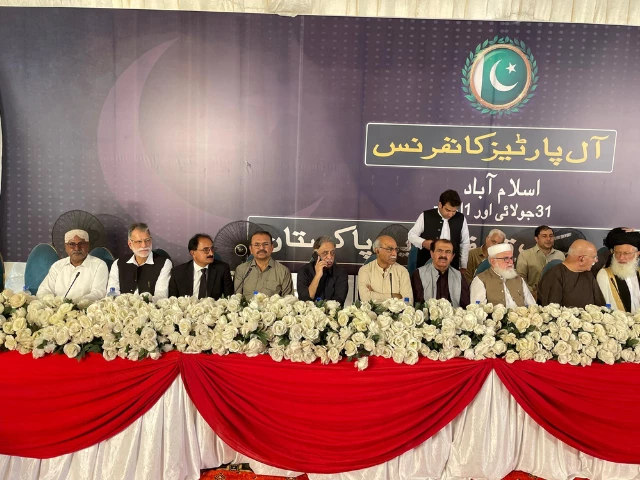TTAP urges top judge to probe sugar scam
Claims that rise in sugar prices direct consequence of deliberate policy choices

An opposition parties' alliance has urged the country's top judge to take suo motu notice of "a systemic policy manipulation" in the sugar industry that has allowed "a select group of sugar barons" to reap immense profits "at the direct expense of common citizens".
The "urgent appeal" sent to Chief Justice of Yahya Afridi by Tehreek Tahaffuz Aine-e-Pakistan (TTAP) Vice Chairman Mustafa Nawaz Khokhar stated that the recent sugar crisis is a stark testament to how entrenched interests exploit national policy for personal gain.
It claimed that an alarming increase in sugar pricesto an unprecedented Rs200 per kg since Januaryis not a mere market fluctuation but a direct consequence of deliberate policy choices and demands an immediate and decisive intervention of the Supreme Court.
It said Prime Minister Shehbaz Sharif's government, in a move that defies logic and public interest, first approved the export of 765,000 metric tonnes of sugar between July 2024 and May 2025, despite clear warnings of impending supply shortages.
"This decision allowed a select group of sugar barons to reap immense profits. Subsequently, when local prices skyrocketed, the government paradoxically approved the import of 500,000 metric tons of sugar, further facilitating the same beneficiaries through preferential tax treatment."
"The cabinet waived all duties and taxes on these imports. This tax exemption has rightly drawn the ire of the International Monetary Fund (IMF), clashing with loan conditions and exacerbating Pakistan's fiscal strain."
According to the appeal, this export-import cycle, repeated over the past 24 months, unequivocally exposes the profound influence of the sugar industry over national policy. It raises serious questions about economic stewardship and, more critically, about who really benefits from these decisions.
Citing "credible reports", it said a staggering 50% of sugar mills are owned by politicians, including prominent affiliates of the ruling PML-N coalition. This direct involvement of the political class, holding parliamentary seats, represents a profound conflict of interest and cements their "entrenched political clout".
The appeal stated that this blending of political muscle and commercial interest has effectively entrenched a near-monopoly, enabling a calculated strategy to maximize gains for a privileged few.
It said the Competition Commission of Pakistan (CCP) previously imposed penalties totaling Rs44 billion on 81 sugar mills in August 2021, underscoring a history of cartelization and exploitative practices.
"This situation is a textbook example of "extractive institutions" as described by Acemoglu and Robinson in 'Why Nations Fail', designed to 'steer the economic rewards toward a relatively small elite'.
"The crisis mirrors how concentrated political power is used to create immense wealth for those who wield it, while the vast majority of Pakistanis suffer from inflation and a strained economy."
It claimed that the policy shifts in the sugar sector are not accidental but are deliberate mechanisms, crafted by a politically connected elite, to extract wealth from the masses.



1724319076-0/Untitled-design-(5)1724319076-0-208x130.webp)















COMMENTS
Comments are moderated and generally will be posted if they are on-topic and not abusive.
For more information, please see our Comments FAQ